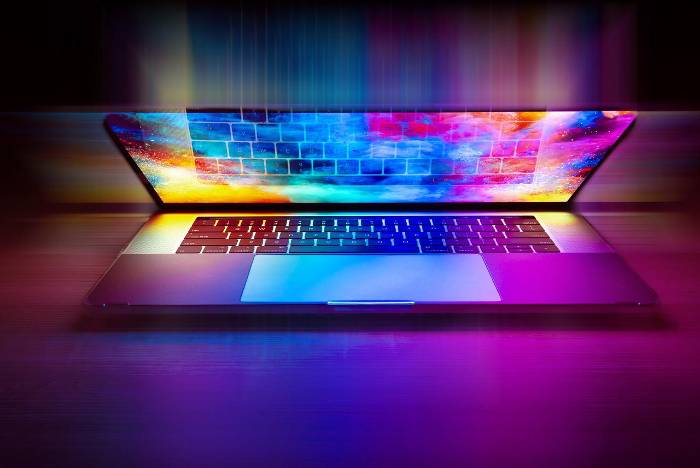If you’re looking for a new laptop, you need to make sure that it will be able to handle all your daily needs. This can be difficult if you don’t know what to look for in a laptop and how much space is required for certain tasks. To help, here are five steps that will help when deciding which laptop is right for you:

Decide How You Will Use Your Computer
Choosing what you’re going to use your laptop for before upgrading it is important because it will help you decide on the type of laptop you need. If you’re planning on doing a lot of gaming, you’ll want to get a gaming laptop. If you’re looking for something lightweight and portable, then you may want to consider getting a Chromebook.
The type of machine you select will also impact how much money you spend on your new computer. For example, if you’re only going to be using the computer for web browsing and writing documents, then there’s no need for it to have a lot of RAM or an expensive processor. However, if you’re going for something that has a little more power, you might investigate getting Intel Xeon Lenovo Laptops.
Find Out if the Laptop Is Energy Efficient
One of the most important factors to consider when upgrading to a laptop is whether it’s energy efficient. Energy efficient laptops use less power, which results in lower electricity bills, and they also have longer battery lives. This means that you’ll be able to go on trips without having to carry your charger with you everywhere.
To find out if a certain model of laptop is energy efficient, look at its wattage rating (in watts). The higher the wattage rating, the more power it uses. Lower wattage ratings mean less power consumption and better battery life.
For example, a 15-inch MacBook Pro has an 85W TDP (thermal design power), while an XPS 13 has an 80W TDP. Both are considered high-end laptops, but because of its lower TDP rating, this means Dell’s notebook uses less energy than Apple’s computer does. While a Mac Mini has a 54W TDP, Microsoft’s Surface Pro 4 comes in at just 15 watts.
Check the Minimum RAM You Need
RAM is the memory of your computer. The more RAM you have, the more programs you can run at once. Some programs take up more memory than others, so before buying a laptop, it’s important to know how much RAM your operating system requires.
The minimum amount of RAM depends on what operating system (OS) you’re using: For example, if you’re going for Windows 10, then it might use 4 GB or 8 GB.
Keep an Eye on the Storage Space You Need
The amount of storage space you need depends on what you plan to use the laptop for. If you’re going to be using it mostly for media consumption and light work, such as catching up on shows and playing some games, then a few hundred gigabytes will be fine (though if you’re planning on storing lots of photos and videos or downloading music and movies regularly, 500GB might not be enough). On the other hand, if this is going to be your primary computer for getting work done, and especially if you’re moving from an older machine with less free space, then more storage might make sense.
For example, you’ll need to ensure that your new laptop has enough space to transfer data from your previous machine. If you don’t, you might notice that once you try to transfer over to your new laptop, you will run out of space quickly.
Make Sure to Get the Right Operating System
Choosing the right operating system for your laptop is important because it will determine how easily you can use it, how quickly it can perform tasks, and what kind of features are available.
If you choose a system that does not have enough memory or processing power to run your applications smoothly, then the computer will lag and run slowly. This will make it hard to work on projects or do other tasks with the computer.
If you choose an operating system that does not have any software that supports your needs, then this can also cause problems with using your laptop. For example, if you are using Windows 8 as an operating system but need Windows 10 for something important, like gaming or video editing, then there might be some compatibility issues between these two systems because they were designed for different purposes.
Conclusion
With so many factors to consider, it can be difficult to know what laptop is right for you. That’s why it’s important to take your time when looking at models and researching the specifications of each one. Keep these tips in mind as you choose which computer will work best for your needs.